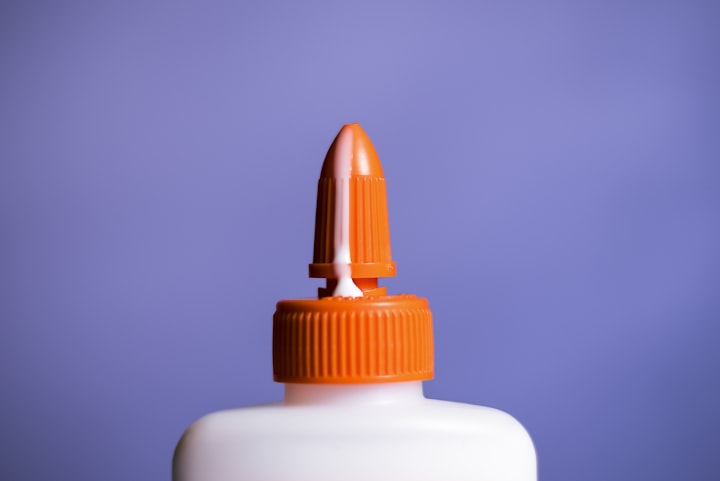Quick Ejaculation Solutions
Best ways to handle pre mature ejaculation

Premature ejaculation, or quick ejaculation, can be a distressing condition for individuals and their partners. While it is essential to consult a healthcare professional for a proper diagnosis and personalized advice, here are some potential solutions and techniques that may help address premature ejaculation:
Behavioral techniques: Several behavioral techniques can assist in managing premature ejaculation. The "stop-start" method involves stimulating the penis until the individual feels they are about to ejaculate, then pausing for a moment to regain control before resuming. The "squeeze" technique involves squeezing the base of the penis when nearing ejaculation to halt the process temporarily. These techniques can help individuals become more aware of their arousal levels and learn to control them effectively.
Pelvic floor exercises: Strengthening the pelvic floor muscles through exercises, such as Kegels, can enhance ejaculation control. These exercises involve contracting and relaxing the muscles that support the pelvic organs. Regular practice can lead to improved control over ejaculation.
Sexual therapy: Consulting with a sex therapist can be beneficial for individuals and couples experiencing premature ejaculation. A therapist can provide guidance, support, and suggest various techniques to manage the condition effectively. They may also address any underlying psychological factors contributing to quick ejaculation.
Communication and relaxation techniques: Open communication with one's partner is crucial when dealing with premature ejaculation. Sharing concerns, exploring different sexual activities, and incorporating relaxation techniques like deep breathing or meditation can help alleviate performance anxiety and promote a more satisfying sexual experience.
Desensitizing techniques: Some individuals find relief by using desensitizing creams or sprays that contain numbing agents. These products can temporarily reduce penile sensitivity, thereby delaying ejaculation. However, it is important to use such products cautiously, following instructions carefully, and considering the preferences and comfort levels of both partners.
Medications: In some cases, healthcare professionals may prescribe selective serotonin reuptake inhibitors (SSRIs), which are primarily used as antidepressants but can also delay ejaculation. However, these medications may have side effects, and their usage should be monitored by a medical professional.
Remember, premature ejaculation is a common issue that can be addressed with patience, understanding, and the right approach. It is always advisable to consult with a healthcare professional or a sex therapist who can provide tailored advice based on individual circumstances.
what are the causes of quick ejaculation?
Premature ejaculation can have various causes, including both physical and psychological factors. Here are some common factors that can contribute to quick ejaculation:
Psychological factors: Psychological issues can play a significant role in premature ejaculation. Some common psychological causes include:
Performance anxiety: Worrying about sexual performance, satisfying one's partner, or fear of being judged can lead to heightened arousal and quick ejaculation.
Relationship problems: Stress, unresolved conflicts, or communication issues within a relationship can affect sexual performance and contribute to premature ejaculation.
Stress and anxiety: General stress, anxiety disorders, or specific anxieties related to sexual performance can contribute to the problem.
Depression: In some cases, depression can affect sexual function and lead to premature ejaculation.
Early sexual experiences: Past experiences, such as guilt, rushed masturbation habits, or negative sexual encounters, can influence ejaculation patterns later in life.
Biological factors: Certain physiological factors can contribute to quick ejaculation. These may include:
Abnormal hormone levels: An imbalance in hormones, specifically serotonin, dopamine, or testosterone, can influence ejaculation timing.
Abnormal neurotransmitter levels: Neurotransmitters like serotonin play a role in ejaculation control, and imbalances can affect ejaculation timing.
Inflammation or infection: Conditions such as prostate inflammation or urinary tract infections may contribute to premature ejaculation.
Genetics: There may be a genetic predisposition to premature ejaculation, although more research is needed to fully understand the relationship.
Other factors: Other potential factors that can contribute to quick ejaculation include:
Erectile dysfunction: Men with erectile dysfunction may experience premature ejaculation as a result of the anxiety and pressure to maintain an erection.
Certain medications: Some medications, such as antidepressants or drugs that affect blood flow, may have ejaculation-related side effects.
Substance abuse: Excessive use of drugs or alcohol can affect sexual function and contribute to premature ejaculation.
It's important to note that premature ejaculation is a common issue that can be addressed with the help of healthcare professionals and appropriate treatment approaches. Identifying the underlying cause can often guide the selection of the most effective treatment strategy.





Comments
There are no comments for this story
Be the first to respond and start the conversation.